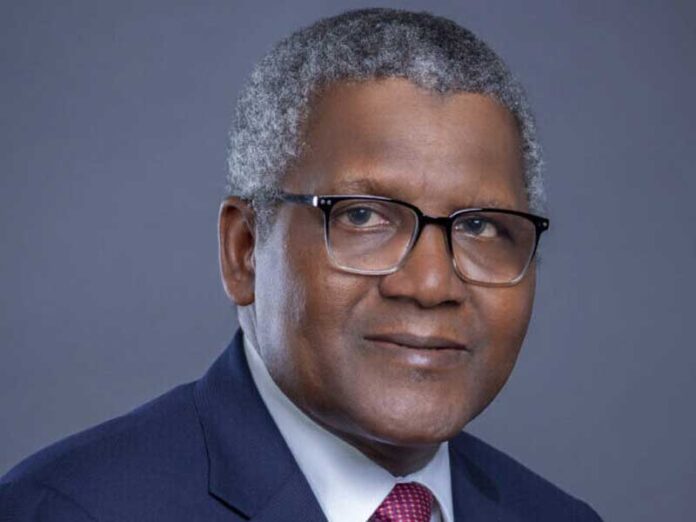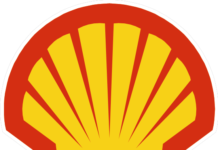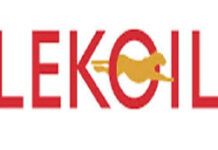Dangote’s Wealth Doubles to $28bn on New 650,000 bpd Oil Refinery
CHIGOZIE AMADI
Africa’s richest person, billionaire Aliko Dangote, has doubled his wealth on the back of his long-awaited 650,000 barrels per day oil refinery in Lagos, Bloomberg reported yesterday.
The Dangote Refinery outside Lagos is the biggest single-train oil refinery in the world and one of the most complex, capable of processing most global crude types.
It has the potential to transform Nigeria’s economy by making the country self-reliant for fuel. And it’s more than doubled his net worth to $27.8 billion, according to the Bloomberg Billionaires Index, the report stated.
“I didn’t know what we were building was a monster,” Dangote, 67, said during a recent visit to New York. “The pressure was coming from different directions, people confusing us, disturbing us every day with different media stories that it will never work, it will never work, it will never work,” the report quoted him as saying.
But since the refinery started running in January, there have been disagreements with the government and state oil company, as well as concerns over its impact on locals and the environment. Dangote is smarting from the blowback, his tone quickly shifting from warm to bitter as he runs through the challenges.
For Dangote, who made his first billions in cement, the refinery was the most audacious undertaking of his 46-year career. Building it took 11 years and $20 billion, three-and-a-half times as long and more than twice as much as initially planned. He financed most of it himself.
The original site for the refinery was scrapped after four years of wrangling with local officials over land issues, he said. Dangote moved the site south to Lagos state where he met more resistance, this time from residents facing relocation.
The new plot turned out to be mostly swamp which had to be dredged, reclaimed and lifted nearly 5 feet (1.5 meters) to avoid flooding from rising sea levels. Dangote’s holding company built a dam, its own port, a massive granite quarry and bought 332 cranes.
Two years into construction, Covid hit. Some of its suppliers went bankrupt and the project locked down, with all workers required to stay on-site.
Meanwhile, Dangote said he was paying $50 million to $60 million a year in interest for a $5.5 billion loan he’d acquired from a consortium of local banks.
Through it all, he said his goal was to address Nigeria’s economic paradox. The country is Africa’s biggest oil producer but a dearth of functioning domestic refineries meant it was exporting its own crude, refining it abroad, then re-importing it as fuel in a loop rife with waste.
Yet when Dangote’s refinery opened earlier this year it had to source crude from abroad, adding to its costs, because most of the country’s output was tied up in long-term contracts.
With a spiralling currency, a history of popular fuel subsidies and steep refining costs, negotiations with the government and the state-owned Nigerian National Petroleum Company (NNPC), have recently been mired in controversy.
To keep his crude oil sweet, Dangote struck a deal in 2021 to sell the NNPC a 20 per cent stake in the refinery at a $13.8 billion valuation. It hasn’t worked out perfectly – that stake was later winnowed to 7.2 per cent — but he said the “good price” he offered was a necessity.
“It’s an industry which you know is full of games,” he said. “It‘s an industry where people are very corrupt,” he added.
Maintaining wealth of any level has become substantially harder in Nigeria of late, Bloomberg said, with the naira having lost more than two-thirds of its value against the dollar following President Bola Tinubu’s relaxing of foreign exchange restrictions.
Dangote boasts that 80 per cent of his business is dollarised. Next year he said Dangote Group will be the biggest supplier of dollars to Nigeria, whose economic woes have been exacerbated by a shortage of the US currency.
“Our strategy is whatever we do, we generate as much foreign exchange as possible,” he said. “That will shield us from the issues of currency devaluation in Africa,” he added.
Dangote’s is looking to co-invest in deals and potentially partner with other billionaires, similar to a fund he’s set up with friend David Rubenstein, co-founder of private equity firm Carlyle Group Inc.
He has a charitable foundation that donates millions of dollars every year but he wants to give away more, $10 billion over time. He talks of stepping back and transitioning the business to his children and other family members, including a grandson who’s finishing university next year.
He laments that his daughters are already older than he was when he got his first private jet (age 23) and built his mansion (33).
The strain of building the refinery has piqued his interest in diversifying, though he’s proud that the industrial sector will define him.
“I’m passionate about it because you’re going to leave a real legacy, especially in Africa,” he said. “I’m making my country and continent self-sufficient in things that they never ever dreamed of,” he stressed.
He can’t resist drawing a comparison with Johann Rupert, the South African chairman of Cartier-owner Cie Financiere Richemont SA, who until recently was closing in on Dangote’s title of Africa’s richest person.
“Sorry, it’s better than selling bags,” he chuckled mischievously. “Some people have done really well by that too but it’s not the same,” he pointed out.

























